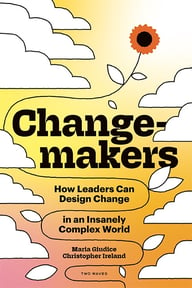Summary
We often hire researchers from a wide range of backgrounds. Most of the time, we need to hire fresh grads, interns, or market research experts. For these individuals with little practical experience in product/UX research and a non-research education background, we must bridge a skill gap. Yoel will talk about his experiments with a variety of ways for boosting the skills of his researchers. He'll talk about the framework he's built, as well as the advantages and disadvantages of each learning project he's tried.
Key Insights
-
•
The difference in performance between research and design teams stemmed from differing approaches to rigor.
-
•
Research teams focused too heavily on scientific rigor, limiting their intuition and adaptability.
-
•
Design teams excelled by integrating intuition and real-time feedback into their processes.
-
•
Philosophers Stolterman, Sean, and Dewey provide frameworks for effective learning through reflection and action.
-
•
Reflection in action becomes crucial for developing practical skills in research.
-
•
Demonstration and imitation as learning techniques enhance practical understanding more than verbal instruction alone.
-
•
Inclusivity in design research practices enriches the field and lowers barriers for entry.
-
•
Cultivating a culture of continuous learning can empower less experienced team members.
-
•
Ongoing dialogue and collaborative practice bridges skill gaps effectively.
-
•
Rethinking rigor in research can liberate practitioners from impostor syndrome and a narrow definition of expertise.
Notable Quotes
"I returned home to Indonesia where I have led the design organizations at two Indonesian tech unicorns."
"We needed to bridge the gap in our skills and practices."
"We set up mentor, mentee or research body programs and we conducted tons of research feedback sessions."
"My first initial outcome hypothesis was that our stakeholders possess a different level of understanding between design and research."
"I discovered very similar protocols between the teams except for these three rituals."
"For him, design research should be built upon design rigor or design methods."
"This intuition or knowing in action is rigorous in its own terms."
"We should submit more to a designer rigor than scientific rigor."
"Learning pedagogy focusing on practices is much more liberating than a banking approach to instruction."
"We should open up our profession to a broader and more inclusive community, including fresh graduates and interns."
















More Videos

"The fidelity of the prototype influences the effectiveness of the disruptions."
Marc Majers Tony TurnerInterrupted UX - Add A Dose of Reality To Usability Testing
March 11, 2022
"Bringing numbers into storytelling can show the direct correlation between design issues and revenue loss."
Panel Discussion: Communicating the Value of DesignOps
November 7, 2018

"There's a double bridging going on here, bringing quantitative thinking to design problems and design thinking to quantitative problems."
Joshua NobleCasual Inference
October 6, 2023

"Don’t leave collaboration to chance; make it deliberate and purposeful."
Emilia Åström Jim KalbachUnlock Your Team’s Intelligence with Collaboration Design
June 9, 2022

"It's important for designers to rethink their savior complex."
Alexandra SchmidtWhy Ethics Can't Save Tech
November 18, 2022

"In a leadership context, we have to make decisions with the best data we have at the moment."
Nalini P. KotamrajuTwo Jobs in One: Being a “Leader who is a Researcher” and a “Researcher who is a Leader"
March 10, 2021

"Design thinking is a set of behaviors, not just a toolbox of methods."
Julie Gitlin Esther RaiceDesign as an Agent of Digital Transformation at JPMC
June 9, 2021

"The world I envisioned did not exist in the model shop."
Dan WillisEnterprise Storytelling Sessions
June 8, 2016

"This community is all about exploring what it means to advance research and collaborating across different divides."
Joseph Williams Nepunnee Birondo Matt Readman Allison NgoUnlocking impact and influence through inclusive hiring in research
December 16, 2021
















